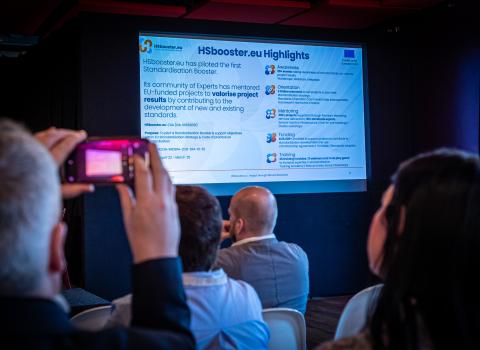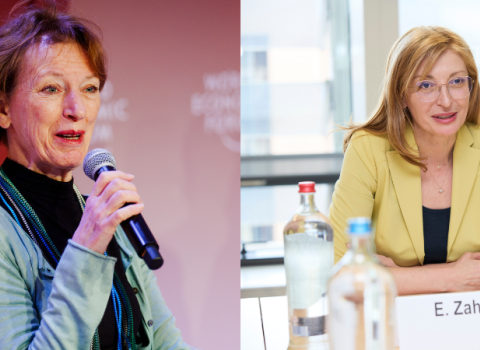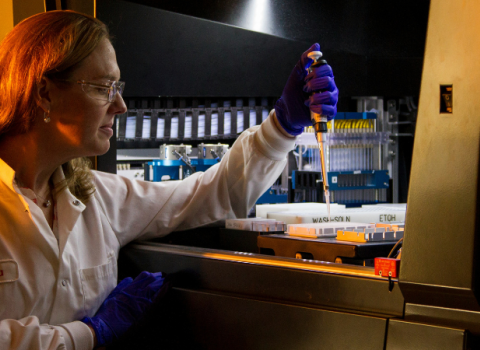European Commission research suggests awarding grants to early career researchers and involving industry is good for innovation

Funding doctoral training can be a driving force for innovation, especially if it involves industry, according to a new European Commission study.
This shows that when companies and organisations with a track record of innovation take part in PhD training funded by the EU’s Marie Skłodowska-Curie Actions (MSCA), more patents and other innovation outputs are generated.
The authors studied 550 projects and identified 118 as having “high innovation output or potential.”
The findings are an argument in favour of funding bottom-up science to boost Europe’s innovation potential. The projects in question involved early career stage scientists and lower technology readiness levels (TRL), but helped generate patents and produce innovations.
In recent years, the EU has been trying to catch up with competitors such as US and China in the global race for new technologies and patents. As a result, the EU’s Horizon Europe programme has tilted towards translation and projects involving close-to-market research.
This shift worries universities and research organisations, which want a larger chunk of the programme to be devoted to bottom-up, blue sky research. They say such research fuels innovation in the long run, as the results of the Commission study appear to illustrate.
The 550 projects examined in the study were funded through MSCA Innovative Training Networks between 2014 and 2017, as part of the Horizon 2020 EU research fund. Under the Horizon Europe programme, they are now called Doctoral Networks. This year’s indicative budget for the call, which is set to close on 28 November, is €435 million.
What works
Success breeds success: Involving innovators with previous experience and those in industry makes the projects more innovative.
Widening countries lagging behind: The innovator organisations identified in the 118 projects are mostly based in innovative European countries. Around 23% are from so-called “innovation leader” countries in north and northwest Europe, according to the European Innovation Scoreboard. Only 1.5% are from so-called emerging innovator countries, the lowest of the four ranks in the scoreboard. These are mostly based in eastern Europe.
The authors note the projects analysed started between 2014 and 2017, just as the Horizon 2020 introduced a set of measures to improve the performance of the Widening countries. Policies take a while to produce results, and the trend might have shifted since.
Innovative organisation leads to innovation: There appears to be a correlation between how innovative the organisation of the project is and its innovation outputs.
This was especially so in projects that showed high social innovation (such as working conditions and health benefits), used innovative training practices, involved industry, provided networking opportunities and exploited synergies with other projects and programmes.
Networking is useful: The 118 most innovative projects presented their results in many events and conferences, among other knowledge sharing and networking opportunities. The authors note that the mobility of researchers in particular facilitated “the co-creation of novel solutions.”





 A unique international forum for public research organisations and companies to connect their external engagement with strategic interests around their R&D system.
A unique international forum for public research organisations and companies to connect their external engagement with strategic interests around their R&D system.